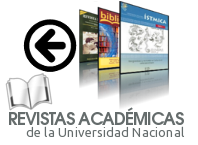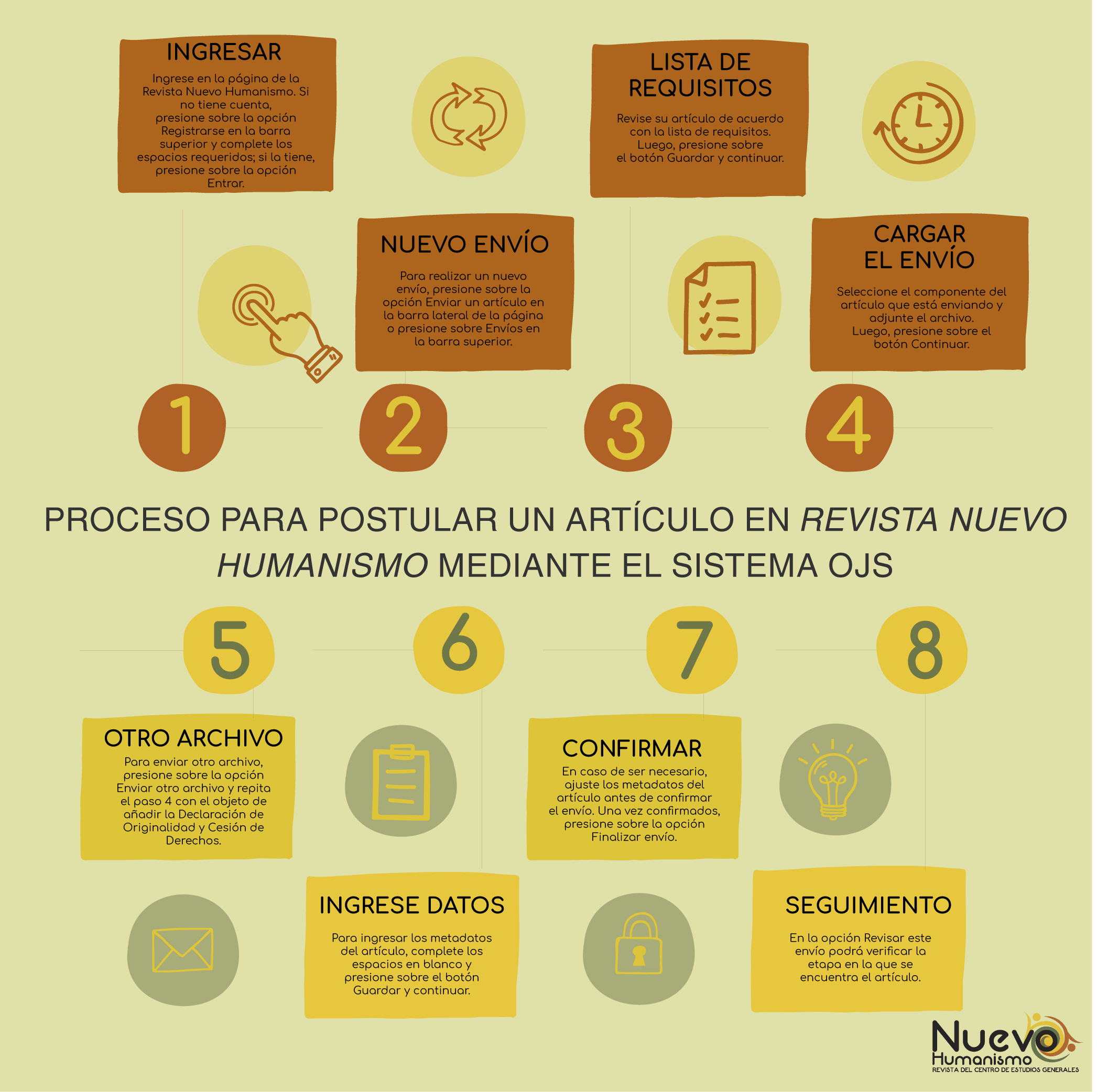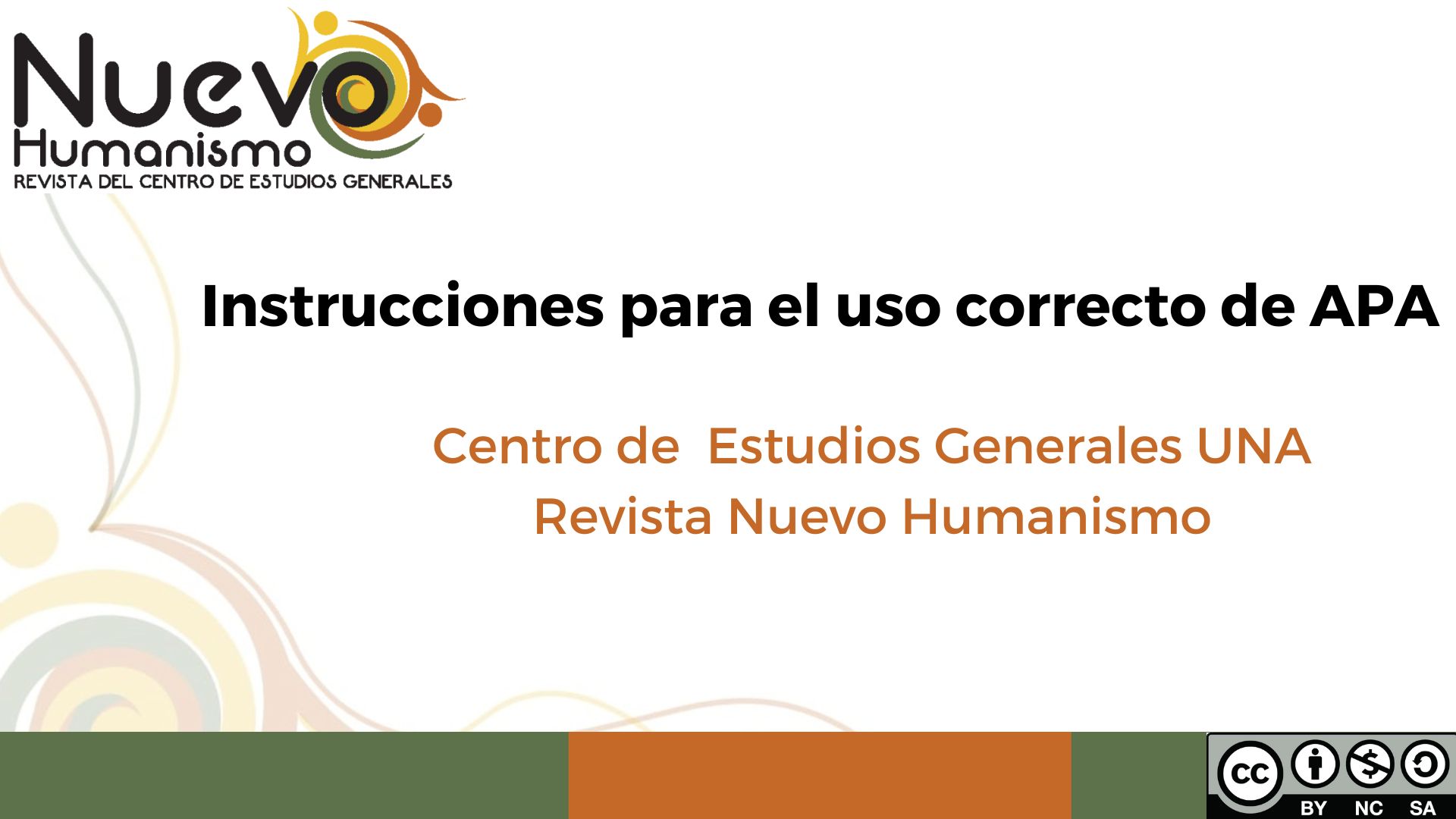The historical responsibility of General Studies in a context of global collapse and civilizational crisis.
DOI:
https://doi.org/10.15359/rnh.12-2.20013Keywords:
critical thinking, education, general studies, humanism, liberalism, western traditionAbstract
Introduction. In the introduction to the article we set out how the global collapse and the current civilizational crisis imply the need for a permanent reflection on the role of general studies and the impulse in the academic formation of a new humanism that criticizes and overcomes the ideological prejudices of liberal humanism. Objective. The general objective of the article is to provide a propaedeutic contribution to address the issue of the responsibility of general studies to continue promoting a new humanism. Discussion. The discussion starts from a critical description of the failure of liberal humanism or that analytical
and colonial interpretation of the history of European and American thought from which a hegemonic and western identity was sought to be defined during the second half of the 20th century. Conclusions. After making this critical exposition, some general and exploratory reflections on the importance of education and general
studies in the process of forming critical thinking of people capable of authentically acing our own societies are presented as conclusions.
References
Aguilar, E., y Gómez, L. (2018). Educación o mercancía: la colonialidad del saber y la práctica educativa desde América Latina. Praxis 77, 1-23 https://doi.org/10.15359/praxis.77.5
Agustín. (2012). La Ciudad de Dios. Imprenta Nacional.
Anker, E. (2014). The Liberalism of Horror. Social Research, 81(4), 795-823. https://doi.org/10.1353/sor.2014.0056
Aristóteles. (2012). Metafísica: edición trilingüe. Gredos.
Baraona, M., Mora, J., y Sancho, M. (2017). El nuevo humanismo proyecto emancipatorio. Revista Estudios, 34, 1-28. https://revistas.ucr.ac.cr/index.php/estudios/article/view/29468/29395
Baraona, M. (2021). La revolución del humanismo. Origen, génesis y actualidad. Editorial Kamuk.
Butler, J. (1993). Los cuerpos que importan. Sobre los límites materiales y discursivos del “sexo”. Paidós.
Díez, E. (2018). Neoliberalismo educativo. Educando al nuevo sujeto neoliberal. Ediciones OCTAEDRO, S. L.
Dussel, E. (1996). Filosofía de la Liberación. CLACSO. https://biblioteca.clacso.edu.ar/clacso/otros/20120227024607/filosofia.pdf
Estenssoro, F., y Vásquez, J. (2017). Las diferencias Norte-Sur en el debate ambiental global. El caso de la propuesta de Ecuador: Yasuní-ITT. Universum, 32(2), 63-80. http://dx.doi.org/10.4067/S0718-23762017000200063
Foucault, M. (1992). El orden del discurso. Tusquets Editores.
Foucault, M. (2007). El nacimiento de la biopolítica. Fondo de Cultura Económica.
Gómez, J. D. (s. f.). Nuevo humanismo en el Centro de Estudios Generales de la Universidad Nacional de Costa Rica [PDF]. https://dd.unah.edu.hn/assets/Uploads/PONENCIA-JUAN-DIEGO-GOMEZ.pdf
Gudynas, E. (2010). La senda biocéntrica: valores intrínsecos, derechos de la naturaleza y justicia ecológica. Tabula Rosa, 13, 45-71. https://doi.org/10.25058/20112742.404
Gunnell, J. (1978). The Myth of the Tradition. The American Political Science Review, 72(1), 122-134. https://www.cambridge.org/core/journals/american-political-science-review/article/abs/myth-of-thetradition/C536D2AAAA60D3B644FC6FC9F402D6CC
Gunnell, J. (1985). Political Theory and Politics: The case of Leo Straus. Political Theory, 13(3), 339-361. https://www.jstor.org/stable/191235
Hallowell, J. (1944). Compromise as a Political Ideal. Ethics, 54(3), 157-173. https://www.journals.uchicago.edu/doi/abs/10.1086/290392
Lander, E. (2019). Crisis civilizatoria. Experiencia de los gobiernos progresistas y debates en la izquierda latinoamericana. Calas.
Laslett, P. (Ed.). (2015). Locke: Two Treatises of Government. Cambridge University Press.
Lutero, M., y Calvino, J. (1995). Secular Authority. Cambridge University Press.
Merriam, C. (1920). A History of American Political Theories. MacMillan Company.
Ortega y Gasset, J. (1982). Misión de la Universidad y otros ensayos sobre educación y pedagogía. Revista de Occidente en Alianza Editorial.
Paniagua, E. (2013). Fundamentación metafísica de las costumbres libertaristas-neoliberales: un enfoque desde el Comité Invisible. [PDF]. https://ucr.academia.edu/EstebanPaniagua
Paniagua, E. (2020). John Locke, ley natural, razón natural y pacto original: un arcano político del liberalismo del siglo XX [Tesis de Maestría]. Universidad de Costa Rica.
Pavón, D. (2023). El vampiro del capital y su pulsión de muerte: vigencia de Marx y Freud ante las actuales violencias estructurales del capitalismo. Revista de Filosofía de la UCR, 62(163), 103-114, https://doi.org/10.15517/revfil.2023.55063
Platón. (1871). Obras completas de Platón (Tomo I). Medina y Navarro Editores.
Platón. (1988). Diálogos V. Gredos.
Quesada, F. (2022). Naturaleza y Metabolismo en Karl Marx: ¿Ecosocialismo? Revista de Filosofía de la Universidad de Costa Rica, 61(159), 11-42. https://revistas.ucr.ac.cr/index.php/filosofia/article/view/45469/50924
Rivera, L. (2010). Teorías de la globalización: aproximaciones complementarias. Praxis, 64-65, 23-50, https://www.revistas.una.ac.cr/index.php/praxis/article/view/4022
Saxe, E. (2005). Colapso mundial y guerra. Yo Amo el Sur.
Sierra, W. (2019). De la ciberpolítica a la política de la digitalidad. Praxis, 80, 1-10. https://doi.org/10.15359/80.5
Skinner, Q. (1966). The Limits of Historical Explanations. Philosophy, 41(157),199-215. https://www.jstor.org/stable/3748405
Smith, A. (2005). An Inquiriy into the Nature and Causes of the Wealth of Nations. English Departament of The Pennsylvania State University.
Spencer, H. (1993). Political Writtings. Cambridge University Press.
Strauss, L. (1989). An Introduction to Political Philosophy. Wayne State University Press.
Strauss, L. (1995). Liberalism Ancient and Modern. University Chicago Press.
Tomás de Aquino. (2001). La Suma Teológica. Biblioteca de Autores Cristiano.
Torres, J. (2017). Políticas educativas y construcción de personalidades neoliberales y neocolonialistas. Ediciones Morata S. L.
Wolfe, D. (1967). Levellers Manifestoes of the Puritan Revolution. Frank Cass & CO. LTD.
Wilson, F. (1944). I. The Work of the Political Theory Panel. The American Political Science Review, 38(4), 726-733. https://doi.org/10.2307/1950481
Published
How to Cite
Issue
Section
License
Copyright (c) 2024 Esteban Paniagua Vega

This work is licensed under a Creative Commons Attribution-NonCommercial-ShareAlike 4.0 International License.











